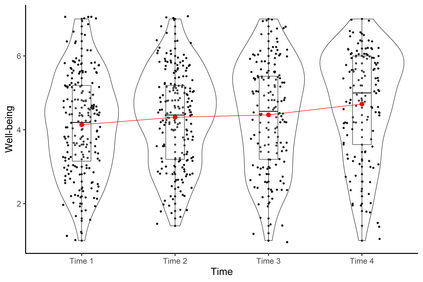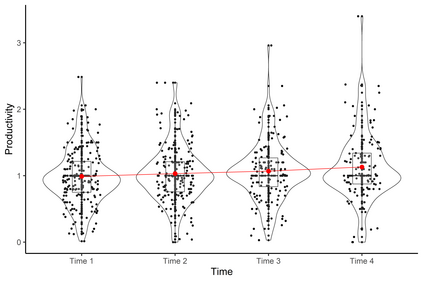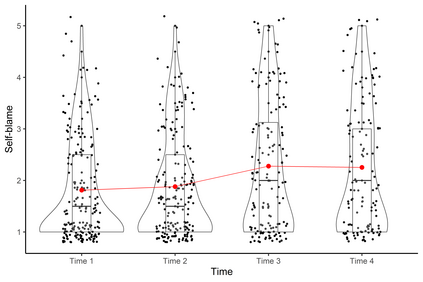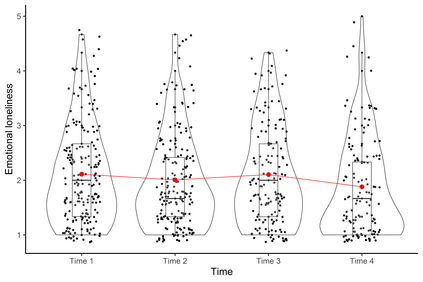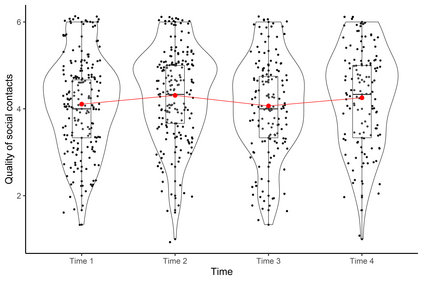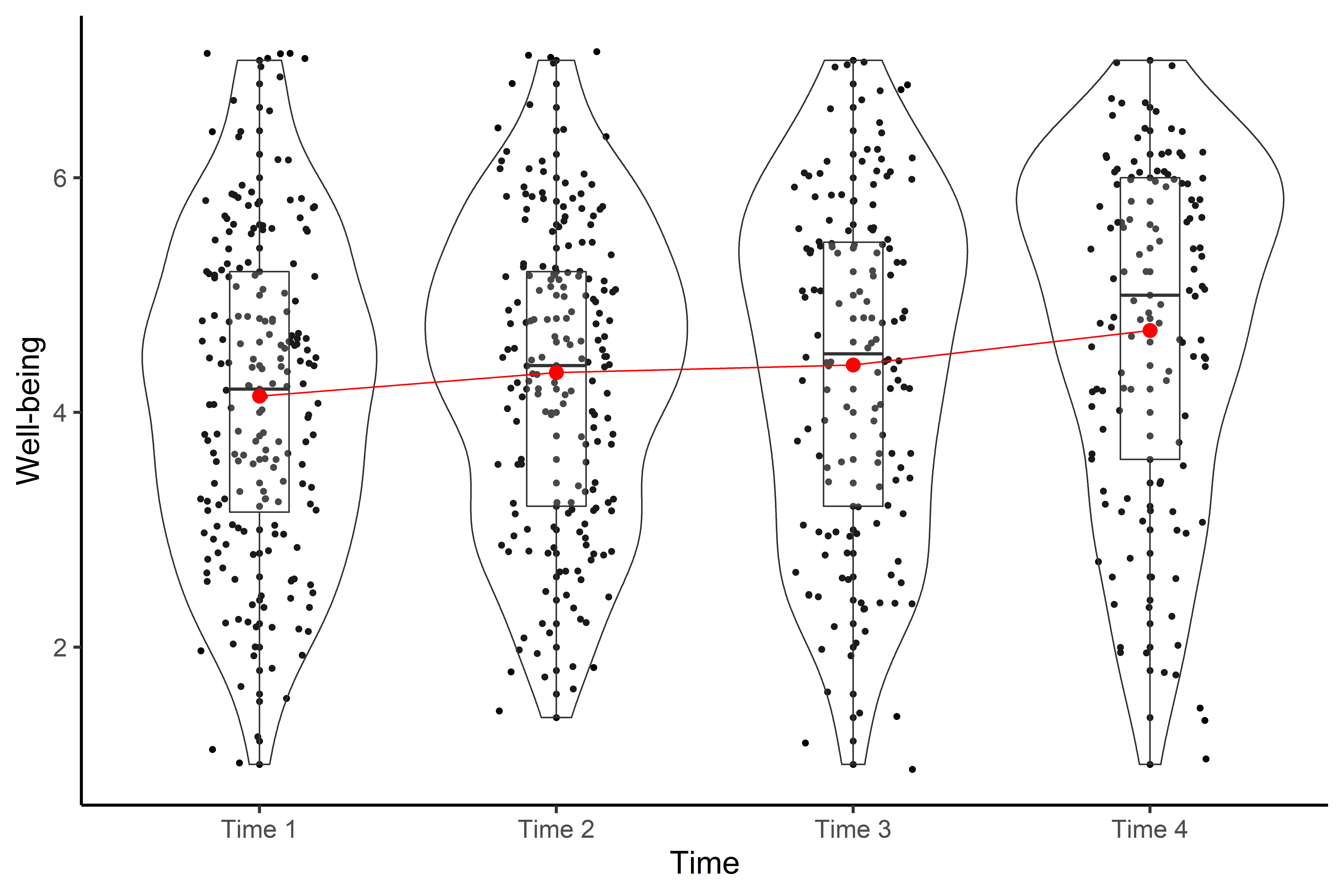COVID-19 has likely been the most disruptive event at a global scale the world experienced since WWII. Our discipline never experienced such a phenomenon, whereby software engineers were forced to abruptly work from home. Nearly every developer started new working habits and organizational routines, while trying to stay mentally healthy and productive during the lockdowns. We are now starting to realize that some of these new habits and routines may stick with us in the future. Therefore, it is of importance to understand how we have worked from home so far. We investigated whether 15 psychological, social, and situational variables such as quality of social contacts or loneliness predict software engineers' well-being and productivity across a four wave longitudinal study of over 14 months. Additionally, we tested whether there were changes in any of these variables across time. We found that developers' well-being and quality of social contacts improved between April 2020 and July 2021, while their emotional loneliness went down. Other variables, such as productivity and boredom have not changed. We further found that developers' stress measured in May 2020 negatively predicted their well-being 14 months later, even after controlling for many other variables. Finally, comparisons of women and men, as well as between developers residing in the UK and USA, were not statistically different but revealed substantial similarities.
翻译:COVID-19 很可能是自二战以来全世界所经历的最具破坏性的全球性事件。我们的学科从未经历过这样一种现象,软件工程师被迫在家中突然工作。几乎每个开发商都开始新的工作习惯和组织常规,同时试图保持精神健康和在封锁期间保持精神健康和生产力。我们现在开始认识到,其中一些新习惯和常规可能在今后会与我们在一起。因此,了解我们迄今为止如何在家工作非常重要。我们调查了15个心理、社会和情况变数,例如社会接触的质量或孤独预测软件工程师在超过14个月的4个浪潮长期研究中的福祉和生产力。此外,我们测试了这些变数是否随时间的变化而变化。我们发现,在2020年4月至2021年7月之间,开发商的福祉和社会接触的质量有所改善,而他们的情绪孤独感却在下降。其他变数,例如生产率和无聊程度没有改变。我们进一步发现,2020年5月测量的开发商压力对14个月后,即使在控制了许多其他变数之后,他们的生活状况也消极地预测了。最后,对女性和男性的统计学家之间的对比显示,美国是实质性的。

